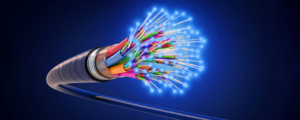
Elon Musk has expressed strong opposition to Jio’s push for an auction of satellite spectrum, arguing that it is traditionally shared based on International Telecommunication Union (ITU) guidelines. India’s telecom minister, Jyotiraditya Scindia, confirmed that satellite spectrum will be allocated administratively, countering Jio’s call for an auction. Mukesh Ambani, chairman of Reliance Industries, emphasized the importance of local data storage and called for incentivizing the establishment of AI and machine learning data centers in India.
NEWS: Reliance Jio – India's #1 telco with 480 million subscribers – is challenging the administrative allocation of spectrum to @Starlink by the Telecom Regulatory Authority of India (TRAI) 🇮🇳
— ALEX (@ajtourville) October 14, 2024
Reliance says satellite broadband spectrum should be auctioned (not allocated)… pic.twitter.com/WxejOzRZE1
Musk voiced his disagreement on X (formerly Twitter), stating that auctioning satellite spectrum would be unprecedented since it has long been designated by the ITU as shared spectrum for satellites. Meanwhile, Bharti Enterprises chairman Sunil Mittal appeared to side with Jio, stating at the India Mobile Congress (IMC) that satellite operators looking to serve urban and retail markets must undergo the same licensing and spectrum purchase processes as telecom operators, fulfilling all regulatory obligations, including rollout requirements and taxes.
During the event, Minister Scindia clarified that the new law supports administrative allocation for satellite spectrum, as is the case globally. He stated, “Spectrum for satellite services will be allocated administratively, but this does not mean it will be free. The cost and formula for allocation will be determined by the telecom regulator Trai. Satellite spectrum is shared globally, and India is following the same approach. Shared spectrum cannot be priced individually.”



